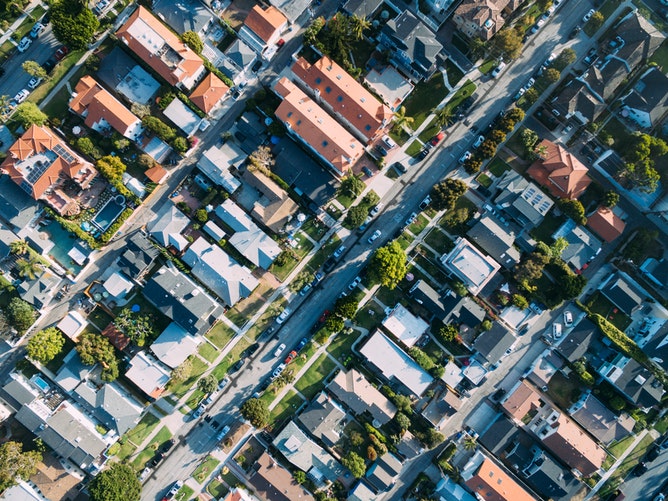8 signs your area’s property prices are about to drop
March 13, 2018 / Written by Rich Harvey
By Rich Harvey, CEO and Founder propertybuyer
So you’ve just bought or own a house and, obviously, you’d like to sell it at a major profit one day. But what if that doesn’t happen? What if property prices in your area are going to slip and never recover – is there a way to preempt this and sell before the prices plummet? Absolutely.
Here are red flags that will help you predict depreciation and sell before you lose too much on your investment.

How To Preempt Neighbourhood Depreciation:
1. Your Neighbours Stop Maintaining Their PropertiesA home that’s on a block of houses that aren’t well maintained is going to sell for less. Poor maintenance includes things like peeling paint-work, overgrown lawns, litter in the streets, broken fences, graffitti, dilapidated buildings and so on.
Having a poorly maintained home or garden may be a sign that people living in the neighbourhood are falling into economic depression, and visible signs of that are never good for property prices in the area.
2. Commercial Buildings Start Appearing On Your Neighbouring BlockAs a general rule, commercial buildings diminish real estate values in the areas in which they are built.
This is because homeowners can’t control loitering and having a commercial building in the area often leads to overcrowded parking, litter and excess noise.
Of course, there are the odd exceptions to this, as certain stores or upmarket brands can raise the tone of the street they’re on. If you become aware of plans for a commercial development in your area you need to think hard about whether it’s going to be beneficial or deleterious for the area.

3. Crime Rates Increase Steadily
Potential buyers will look at crime reports before buying in a certain area. If the crime rates keep increasing the desirability of your neighbourhood will decrease with it.
4. New Freeways, Intersections, Railroads, Airports or Flight Paths
While access and centrality can be positive attributes for a home, if these type of developments are too close they can pose a problem.
Usually, developments such as these come with a resultant increase in noise, pollution or traffic. They may also block or alter the view or bring a lot of undesirable foot traffic to your area, all of which will affect your neighbourhood house prices negatively.

5. Perceived Health Hazards
Being located close to power plants, transformers, landfills, factories, cell phone or radio masts, or anything that people feel might negatively affect their health will have a massive impact on your house prices. Even if the associated health concerns seems ‘new-agey’ and there isn’t concrete evidence of a health hazard, people generally still aren’t willing to take the risk.
If there is talk of any of these elements being introduced to your neighbourhood you should think about selling. Remember that selling a house when people are saying “apparently a cell mast is going to be built nearby” is still going to be easier than selling one once it has already gone up and people can see it.

6. Neighbourhood Transitioning
If you notice the local coffee shop has recently been sold and turned into a tattoo parlour or pawn shop it should serve as a red flag.
Not that these places are always bad, but genres of stores and establishments tend to flock together (as doing so increases exposure to a certain customer base), which is why you’ll often notice an area with an excess of furniture and decor stores, for example. So if even a single undesirable establishment moves in, you may expect more to be on the way.
7. Developments on Parks, Greenbelts and Views
Homes that are close to open spaces or that have good views will always be more desirable to buyers.
If you hear that your local greenbelt is going to be reduced or developed, or if a huge house or apartment block is going to obstruct your view, you can also expect your house prices to fall once that’s happened.
8. Interest Rates and Building Supply Costs
There are certain factors that will affect property prices across the board. Two obvious ones to look out for are increasing interest rates and decreasing building supply prices.
If there is a sudden or significant increase in interest rates it will affect what people can afford and negatively affect housing prices.
If the cost of building supplies decrease it will result in an increase in the number of newly built houses, which decreases demand and lowers house prices overall.
Keep a close eye on these two factors when you’re next thinking of putting your house on the market.
You don’t have to be a property professional to predict an area-wide downturn: it becomes fairly easy once you know what to look for. Keep your eyes and ears open and always consider all the relevant factors before deciding to buy, sell or stay put.
Remember: when selling in a depreciating area you may not be able to recoup your entire investment, but if you act quickly you’ll certainly be able to minimise the damage.













































.svg)
.svg)
.svg)



